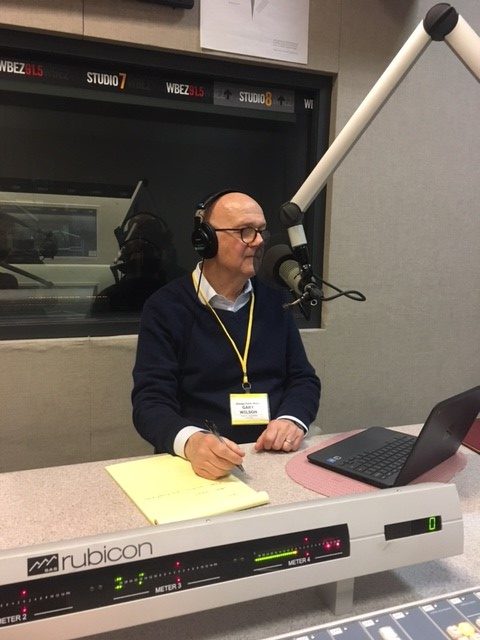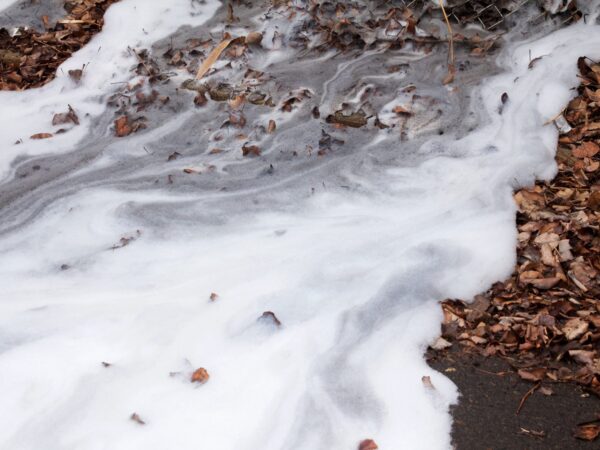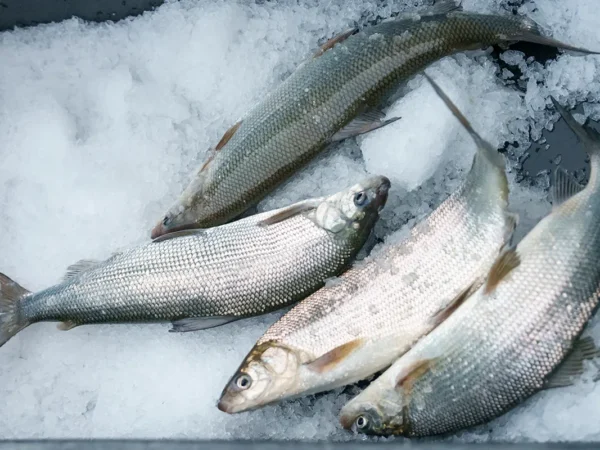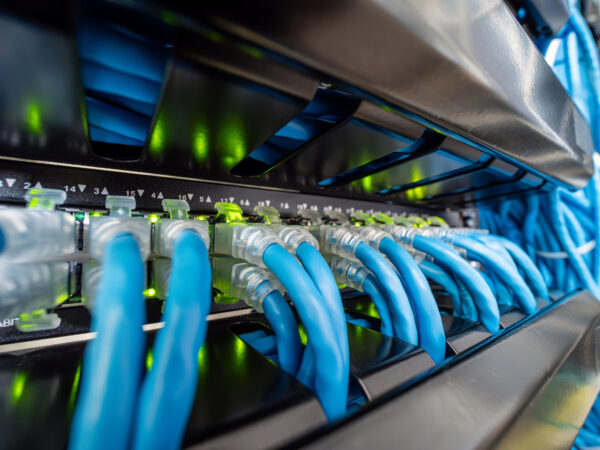
This is part of a series in which the Great Lakes Now staff looks back on 2020.
When I look back at my 2020 Great Lakes Now reporting, three themes jump off the page – Michigan Gov. Gretchen Whitmer, COVID-19 and climate change.
In her 2018 election campaign Whitmer articulated an extensive water and environment agenda and 2020 was the year she started to make progress on it. In March, COVID-19 took center stage and impacted everything. And in spite of the Trump administration’s dismissal of climate change, Great Lakes region governors launched plans to deal with it.
Michigan Gov. Whitmer
My first article of 2020 was about environmental groups beginning to pressure Whitmer to take action on the water agenda she articulated in her election campaign.
The groups generally gave her a pass in 2019 as she put together her team and scrapped with the legislature over her signature campaign pledge to “fix the damn roads.”
But they began to put the spotlight on her pledge to lead the region on Great Lakes issues in 2020.
Chicago’s Environmental Law and Policy Center said that “Ohio needs a push” on protecting Lake Erie from algal blooms and called on Whitmer to “lead in accelerating coordinated actions by her fellow leaders to clean up Lake Erie.”
Traverse City’s For Love of Water wrote to Whitmer asking her to strengthen the Great Lakes Compact, the eight-state agreement designed to prevent diversions of water out of the region.
Noting that Whitmer was recently elected chair of the governors and premiers group known as the Compact Council, FLOW said her “leadership gives Michigan, the Great Lakes state, the opportunity to further strengthen protections of the world’s largest freshwater ecosystem.”
Specifically, FLOW asked Whitmer to lead on closing the bottled water loophole in the compact that defines water in containers less than 5.7 gallons as a product, therefore exposing it to increased risk of diversions.
Whitmer’s most high profile environmental issue is arguably what to do about the aged Enbridge Line 5 oil pipeline in the Straits of Mackinac.
Anti-pipeline activists accused the governor of “shirking her responsibility” on Line 5, I wrote in a July report.
But that pressure ended in October when Whitmer ordered Line 5 shutdown by May of 2021. Enbridge has since launched a legal challenge to the order saying that regulation of pipelines is a federal responsibility, not Michigan’s.
COVID-19
In March and April, the COVID-19 pandemic that gripped the country brought activity to a hard stop. That included the work of Great Lakes researchers who were about to start their 2020 field work.
“Things have literally come to a halt,” Central Michigan University’s Professor Don Uzarski told Great Lakes Now. Uzarski leads a region-wide $20 million dollar wetland research program.
In Ontario, University of Windsor’s Mike McKay leads a team of researchers studying Lake Erie’s algal blooms and he told Great Lakes Now that summer research plans were on hold and that would have a negative impact on the research. He said some of the work could be done via satellite remote sensing but eventually researchers have to get on the water.
Great Lakes sporting events also were not immune to the impact of COVID-19. Fishing tournaments were canceled, the charter boat fishing season on Lake Erie was delayed until June, effectively reducing the season by 50%. Chicago’s iconic sailboat race to Mackinac Island was canceled after running every year since 1921.
Great Lakes shipping continued, but business declined dramatically on transport of iron ore to steel mills in Detroit, Chicago and Cleveland as demand for raw material for manufacturing took a hit. Eventually, 10 freighters were taken out of service based on lack of demand, according to the Lake Carriers Association.
Climate change
New York has led the Great Lakes states on climate change and Gov. Andrew Cuomo put a spotlight on the issue prominently in his state of the state speech, we reported in February.
“No economic strategy, no social justice reform, no education policy will be worth a damn if we don’t have a planet that we can live on,” Cuomo said, citing wetland destruction, flooding and algal blooms as threats to the region.
In September, Michigan Gov. Whitmer joined the other Great Lakes states by announcing her “economic decarbonization” by 2050 plan.
“Through comprehensive and aggressive steps, we will combat the climate crisis by formally setting and relentlessly pursuing a goal of statewide decarbonization by 2050,” Whitmer said in a statement on the plan’s release.
Whitmer’s announcement was widely praised by climate activists but was also seen as contradictory as Michigan has an agreement with Enbridge Energy to build a replacement pipeline for the existing Line 5. If constructed, it would position Michigan as an oil transport conduit for decades to come.
Highlight reel
A lot happened in 2020 that did not garner the attention that COVID-19 and climate change did.
In April, a Michigan administrative law judge upheld Michigan’s 2018 decision to allow Nestle to withdraw more water for bottled water. In November, the Department of Environment, Great Lakes, and Energy dismissed the appeal of the case brought by water conservation activists in a decision FLOW called “baffling.”
Canada announced a ban on certain single-use plastic items designed to take the next step toward its goal of zero plastic waste by 2030.
We also interviewed key figures in the region to bring their thoughts to Great Lakes Now followers.
Veteran Great Lakes executive Cameron Davis said the COVID-19 pandemic could provide ways to reassess our lives that would lighten our impact on the natural world. He suggested applying green infrastructure principles to agriculture as an example.
“We could call it ‘agristructure.’ That approach is no less relevant for stormwater that washes off agricultural lands than it is for urban and suburban settings,” Davis said.
Sally Cole-Misch talked about her new novel, The Best Part of Us, which takes place at the intersection of family connection and conflict mixed with a culture clash where the natural world is always in the foreground.
On how she chose the setting for the novel Cole-Misch said, “Lake Huron is often the forgotten Great Lake. We all know about Lake Michigan and Lake Superior’s majesty. But the Canadian Shield country is gorgeous, so it was easy personally to write about it.”
James Weakley, president of the Lake Carriers Association, updated us on the impact of COVID-19 on the shipping industry, the status of a new Soo Lock and icebreaker, and tension between the U.S. and Canada over transborder navigation issues.
On why we need to see lake freighters as more than the good-looking ships Weakley said, “they’re the grease that keeps the economy moving.”
And of course, the 2020 election.
University of Detroit Mercy law professor Nick Schroeck explained the opportunities and barriers President-elect Joe Biden will face as he deals with President Donald Trump’s environmental rollbacks and re-engaging the country on climate change.
Schroeck expects climate change to be a major policy focus area for the Biden team and that includes emphasis on environmental justice.
Simply talking about environmental justice without action won’t be enough, according to Schroeck. “These are communities that have heard a lot of happy talk from politicians for decades, and they deserve action,” he told Great Lakes Now.
————————-
Editor’s note: After over 200 reports and interviews since 2017, this is Gary Wilson’s last article for Great Lakes Now. He will continue in 2021 doing monthly Q&As.
Read 2019’s staff lookbacks:
Superior Crossing: Sailing across the biggest, deepest and coldest Great Lake
An Open Letter: I have been seeing lake sturgeon and plan to keep it up in 2020
4 out of 5: I’ll get you next time, Lake Ontario
The Great Lakes in 2019: Senior Correspondent Gary Wilson’s look back at the headlines
Great Lakes Now: Our 2019 look back and our 2020 look ahead
Or read some real news on Great Lakes Now:
Pipelines and Plastic Bottles: Michigan advocate focuses on Line 5 and Nestle bottled water issue
Field Tiles: Continued use and improvement of drainage systems pose problems for Lake Erie
Family-owned fishing businesses displaced by waterfront developments on Great Lakes
API key not valid. Please pass a valid API key.Featured image: Gary Wilson (Photo Credit: WBEZ/Dave Miska)




